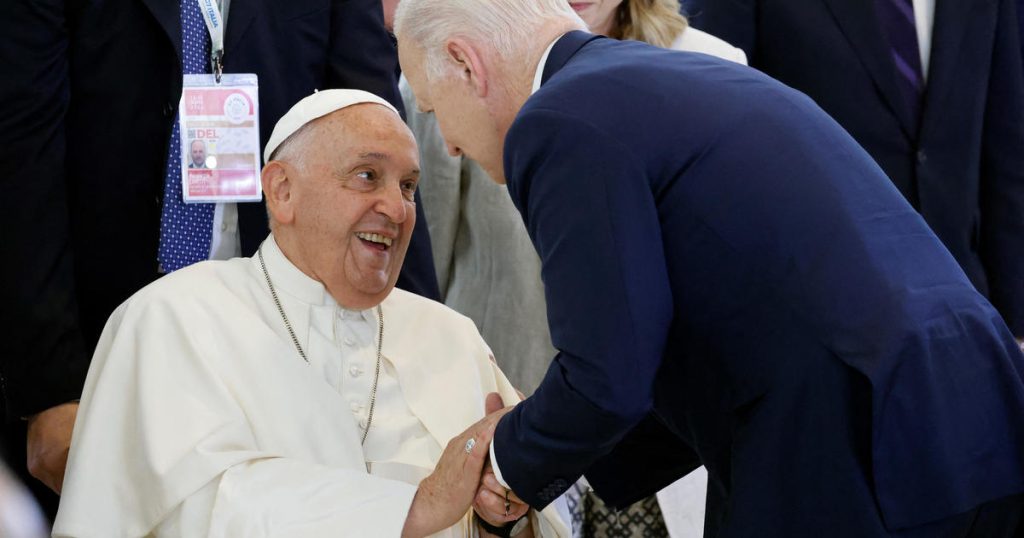World leaders at the G7 summit recently agreed to offer a $50 billion loan to Ukraine to provide financial assistance to the country. This decision was made during the summit in Italy and was aimed at supporting Ukraine during a difficult time. Pope Francis, the first Pope to attend a G7 summit, addressed the leaders on the topic of artificial intelligence, emphasizing the importance of maintaining human dignity in the development and use of AI. He warned that AI has the potential to reduce human relations to algorithms and called for politicians to ensure that AI remains human-centric.
During his address, Pope Francis highlighted the need for human control over decisions made by artificial intelligence programs, especially in areas such as the use of weapons. He stressed that removing people’s ability to make decisions about their own lives and allowing machines to control these decisions would condemn humanity to a future without hope. The spread of AI and migration were among the key topics discussed by world leaders at the summit. After the session, Pope Francis met with the G7 leaders individually, receiving a round of applause and engaging in discussions with them for approximately 25 minutes.
The $50 billion loan to Ukraine was seen as a crucial step in providing financial support to the country, which has been facing significant challenges due to geopolitical tensions and economic hardships. The leaders of the world’s wealthy democracies came together to offer this assistance, emphasizing the importance of standing in solidarity with Ukraine during a time of need. The loan is expected to help Ukraine address its financial concerns and stabilize its economy, contributing to the overall well-being of the country and its people.
The participation of Pope Francis in the G7 summit highlighted the growing importance of ethical considerations in the development and use of artificial intelligence. As AI technology continues to advance, there is a growing recognition of the need to prioritize human dignity and ensure that AI remains under human control. The pope’s address served as a reminder to world leaders about the ethical responsibilities involved in the deployment of AI and the importance of making decisions that uphold human values and rights.
The discussions at the summit also touched upon the topic of migration, highlighting the challenges and opportunities associated with the movement of people across borders. World leaders considered various aspects of migration, including the need for international cooperation, human rights protections, and humanitarian assistance for refugees and migrants. These discussions underscored the complexities of the migration issue and the importance of addressing it in a comprehensive and thoughtful manner.
Overall, the G7 summit provided a platform for world leaders to come together and discuss pressing global issues such as artificial intelligence, migration, and financial assistance to countries in need. The commitment to offering a $50 billion loan to Ukraine demonstrated a shared goal of supporting countries facing economic challenges and geopolitical tensions. The discussions at the summit emphasized the need for ethical considerations in the development of AI and highlighted the importance of upholding human dignity in the use of technology. The participation of Pope Francis added a moral dimension to the discussions, reminding leaders of their responsibilities to protect human values and rights in the face of technological advancements and global challenges.


